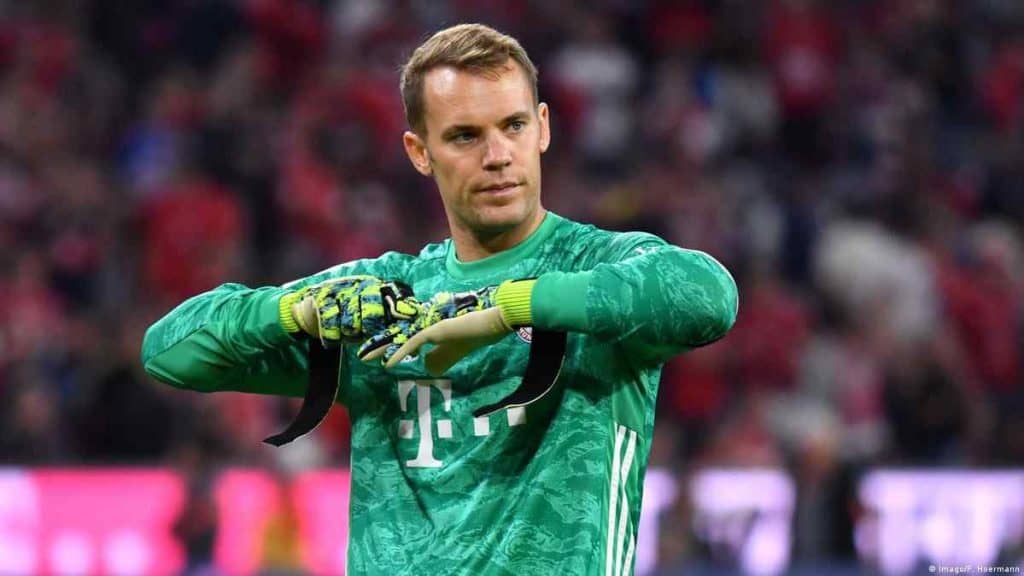
Are you curious about the financial side of professional soccer, especially in Germany? You’re not alone.
With soccer being one of the most popular sports globally, it’s no surprise that many fans wonder about the earnings of their favorite players.
In this article, we’ll delve into pro soccer players’ salaries in Germany, shedding light on the factors that influence their earnings and the financial impact on both players and clubs.
We’ll take a closer look at the average salary of a Bundesliga player and how it compares to other major soccer leagues worldwide.
Additionally, we’ll break down soccer players’ earnings to give you a better understanding of their income sources.
Finally, we’ll reveal the highest-paid soccer players in Germany and discuss the contract negotiations and salary agreements behind the scenes.
So, get ready to discover the financial side of the beautiful game in Germany and explore the freedom that comes with the life of a pro soccer player.
In a hurry? Here’s a quick & short answer that’ll definitely help you out!
Professional soccer players in Germany, especially those playing in the top-tier Bundesliga, earn a substantial salary. As of 2023, the average annual income ranges from $1.5 to $2 million, though star players can earn significantly more. Remember, these figures also exclude lucrative sponsorship and endorsement deals.
| League | Average Annual Salary |
|---|---|
| Bundesliga 1 | $1.5 – $2 million |
| Bundesliga 2 | $200,000 – $500,000 |
| 3. Liga | $50,000 – $150,000 |
Related: How Much Do Female Soccer Players Make In Germany?
Pro Soccer Salaries in Germany

So, you’re curious about the money professional footballers to rake in while playing in Germany. Well, you’re in for a treat as we dive into the world of German football salaries and explore the financial rewards of playing in one of the most competitive leagues in the world.
Remember that salaries can vary greatly depending on the player’s experience, skill level, and the club they play for.
However, playing professional football in Germany can be pretty lucrative, giving you the freedom to live a comfortable life and fulfill your dreams.
In the German Bundesliga, the highest-earning players can make millions of euros annually, with top stars like Robert Lewandowski and Erling Haaland earning well over €10 million annually.
On the other hand, lesser-known players in the lower tiers may earn a more modest salary, ranging from €50,000 to €250,000 per year.
Regardless of their pay grade, playing in Germany offers a unique opportunity to develop your skills and build a successful career while experiencing this beautiful country’s rich culture and history.
So, if you’re an aspiring footballer with dreams of playing in Germany, there’s no better time to lace up your boots and start chasing your goals.
The Average Salary of a Bundesliga Player

Imagine earning a staggering €45,000 per week just by playing your favorite sport in the thrilling Bundesliga league!
That’s right, the average salary of a Bundesliga player is estimated to be around €45,000 per week or approximately €2.34 million per year.
As one of the most famous soccer leagues in the world, the Bundesliga offers a fantastic opportunity for players to earn a substantial income while competing against top talent.
To better understand the salary breakdown in the Bundesliga, consider these key points:
- Top-tier players: Some of the highest-paid players in the Bundesliga earn between €10 to €15 million per year, with exceptional cases like Robert Lewandowski from Bayern Munich, who reportedly earns around €20 million annually.
- Mid-tier players: These players are still exceptionally talented but not necessarily the stars of their teams. Earning between €1 to €3 million per year, they still enjoy a comfortable lifestyle and financial freedom.
- Lower-tier players: Even at the lower pay scale, Bundesliga players are well-compensated compared to other leagues. They can earn between €500,000 to €1 million per year, providing them with a good standard of living and the opportunity to explore their passions outside of soccer.
As you can see, playing in the Bundesliga can offer a path to financial freedom and the ability to live a life filled with excitement and adventure.
So why not dream big and aim for a career in one of the most prestigious soccer leagues in the world?
Factors Influencing Pro Soccer Player Salaries
It’s essential to consider various factors that influence a professional footballer’s salary, especially when looking at the wide range of earnings within the Bundesliga.
One primary factor is the player’s skill level and performance on the field. Top-performing athletes are more likely to command higher salaries as they bring in more fans, drive ticket sales, and contribute to a team’s success.
Additionally, a player’s age and experience play a crucial role in earning potential. Younger athletes with promising futures often draw higher wages than their older counterparts, while experienced players who’ve proven themselves in the past may also command a premium price.
Another significant factor in determining a pro soccer player’s salary is the team they play for and its financial resources. Big clubs with larger budgets can afford to offer their players more generous salaries, while smaller clubs may have to be more conservative with their spending.
Furthermore, a player’s marketability and reputation off the field can also impact their earnings. Athletes with solid personal brands or endorsement deals often earn more than those without.
Ultimately, the freedom to achieve financial success in professional soccer is determined by a combination of factors, including skill, experience, team resources, and marketability.
Related : How A Bad Coach Affects Soccer Players Career?
Breakdown of a Soccer Player’s Earnings

How does a footballer’s paycheck get divided? Picture it like a cake, with each slice representing various sources of income: club salary, bonuses, endorsements, and image rights.
For example, Cristiano Ronaldo earns an estimated $64 million from his club salary and bonuses. Still, his total earnings skyrocket to $105 million when endorsements and image rights are added to the mix.
This breakdown of earnings allows players to maximize their income, giving them the freedom to pursue their passions both on and off the field.
- Club Salary: This is the primary source of income for most footballers and is negotiated between the player and their club. In Germany, the average salary for a Bundesliga player is around $45,000 per week or $2.34 million per year, but top players can earn significantly more.
- Bonuses: Performance-related bonuses can significantly increase a player’s earnings. These can include goal or assist bonuses and bonuses for winning titles or qualifying for European competitions.
- Endorsements and Image Rights: Top players often have lucrative endorsement deals with major brands, which can sometimes even surpass their club salaries. In addition, some players have image rights deals, which involve licensing their name or likeness for commercial use. These additional sources of income can help players achieve financial freedom and independence, allowing them to focus on their craft and enjoy the fruits of their labor.
The Highest-Paid Soccer Players in Germany
In Germany’s football world, the highest-paid athletes have amassed significant wealth through club salaries, bonuses, endorsements, and image rights.
These players not only rake in millions of euros annually but also gain immense popularity and the opportunity to travel the world, representing their clubs and country in prestigious tournaments.
One notable example is Bayern Munich’s Robert Lewandowski, considered one of the top earners in German football, with an estimated annual salary of around €20 million.
Besides his club salary, Lewandowski enjoys lucrative endorsement deals with major brands like Nike, Huawei, and Opel.
Another highly-paid player is Borussia Dortmund’s Marco Reus, with an estimated annual salary of around €10 million. The list goes on, with several other players in the Bundesliga earning well into the millions.
These athletes have managed to turn their passion for soccer into a way to secure their financial futures and fulfill their desires for freedom and adventure on the global stage.
Contract Negotiations and Salary Agreements

Have they ever wondered how these top-earning athletes negotiate jaw-dropping contracts and seal those hefty salary deals? It’s a fascinating process involving agents, clubs, and players.
Contract negotiations for professional soccer players in Germany can be complex, with multiple factors influencing the final salary agreement.
These negotiations typically occur between the player’s agent and the club, with the player’s input and approval.
Here are some key factors that play a role in determining a player’s salary in Germany:
- Performance and talent: The better the player’s performance on the field, the higher the salary they can command.
- Market demand: If multiple clubs are interested in a player, the player has more leverage to negotiate a higher salary.
- Experience: Veteran players with a proven track record can demand higher salaries than newcomers.
- International status: Players representing their national team or having a solid international reputation can command higher salaries.
- Club’s financial resources: Wealthier clubs can afford higher salaries, while smaller clubs may have limited budgets.
During the negotiation process, both parties will often make compromises to reach an agreement that satisfies their respective needs and desires.
Players seek to maximize their earnings and secure their financial future, while clubs aim to attract and retain top talent within budget constraints.
As long as both parties are willing to work together and find a mutually beneficial solution, the result can be a lucrative contract that allows players to enjoy the freedom and opportunities of being a top-earning athlete in Germany.
Financial Impacts on Players and Clubs
Imagine the financial impact on players and clubs when negotiating those high-stakes contracts, such as when Bayern Munich signed Robert Lewandowski, making him one of the highest-paid athletes in the sport.
When a club invests significant money in a player, it can be a gamble. They’re banking on the player’s ability to perform at a high level and contribute to the team’s success.
On the other hand, the player’s financial future can be significantly impacted by the contract. A successful negotiation can lead to financial security and open up endorsement opportunities. A less favorable deal could limit their earning potential.
The financial impacts on both players and clubs can be far-reaching, affecting their situations and the overall dynamics within the sport.
For clubs, a high-profile signing can boost their international reputation and increase revenue from ticket sales, sponsorships, and merchandise.
For players, a lucrative contract can provide the freedom to focus solely on their performance and personal development without the added pressure of financial concerns.
Moreover, their newfound financial security allows them to explore other interests and passions outside soccer, ultimately contributing to a more fulfilling life.
Related: Can A Soccer Coach Step On The Court During Play?
Conclusion
In conclusion, let’s talk about the captivating career of a pro soccer player in Germany. The Bundesliga boasts bountiful salaries, often influenced by performance, position, and popularity.
Remember that these thrilling paychecks come with contract negotiations and financial impacts on players and clubs alike.
Stay savvy about the soccer scene as you explore the exhilarating earnings of Germany’s gifted goal-scorers and dazzling defenders.



